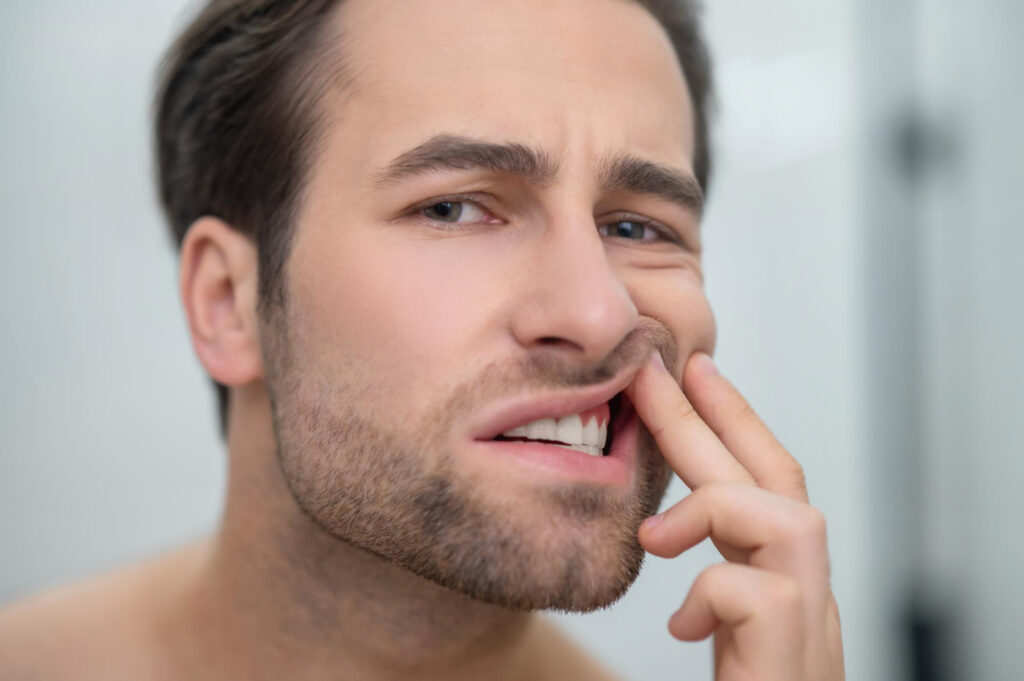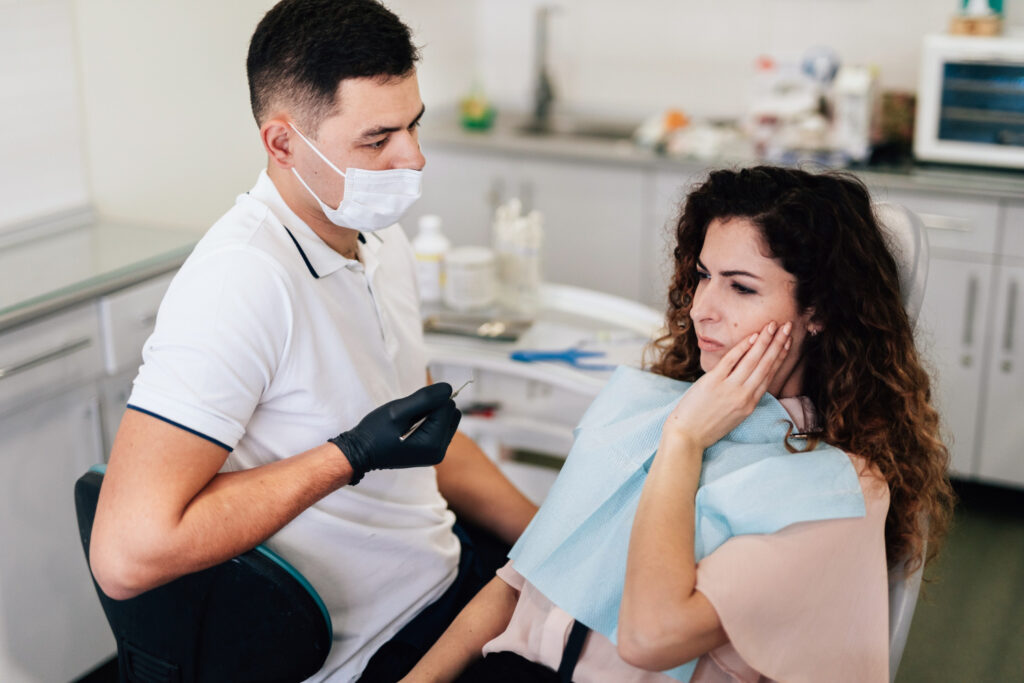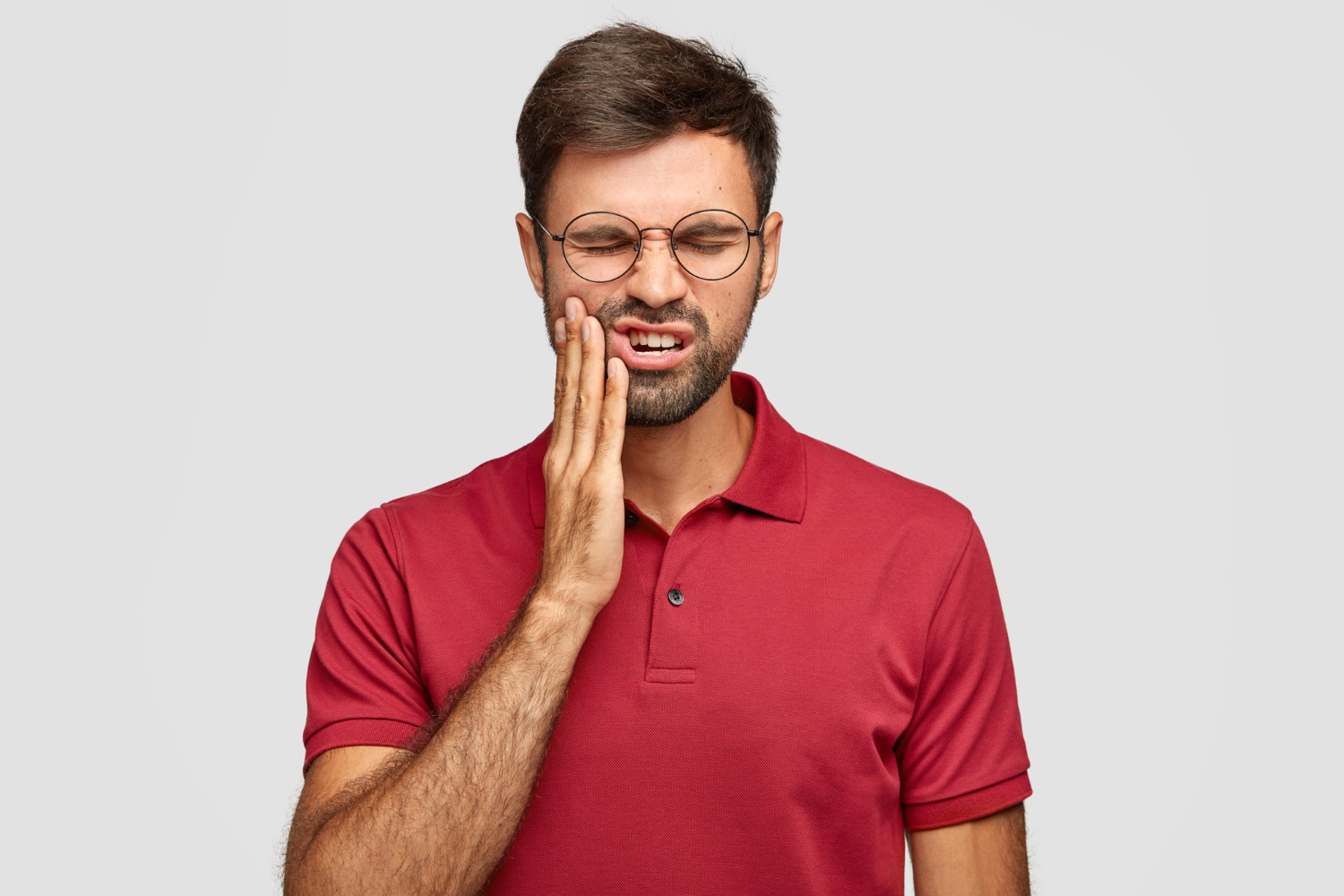Nothing quite like waking up refreshed and ready to take on the world. But what happens when you open your eyes, stretch out those tired limbs, and feel a jolt of pain or hurt through your teeth? Ouch! It’s not precisely the wake-up call we were hoping for.
Suppose you’ve ever wondered why your pearly whites seem to be staging their morning revolt. We’re here to uncover the mysterious reasons behind this unwelcome dental drama.
Teeth Grinding
Stress and anxiety often play starring roles in this nocturnal drama. When we’re feeling tense or overwhelmed, our jaws clench up as if they’ve been cast in a Hollywood action flick. And while our brains may be trying to protect us from danger during sleep (thanks, evolution!), our poor teeth bear the brunt of it all. Sometimes, though, there’s no clear trigger for this gnashing and grinding extravaganza. It could be due to misaligned teeth or even an abnormal bite. Whatever the case, these overnight wrestling matches can leave you with sore and sensitive teeth come morning. So what can you do about it? Finding ways to manage stress is always a good start – whether it means practicing relaxation techniques or seeking professional help when needed.
TMD
TMD, or temporomandibular disorder, is another possible cause of waking up with tooth pain. This condition affects the joints and muscles that control jaw movement. When these joints become irritated or inflamed, it can lead to discomfort in various areas of the face, including the teeth. One common symptom of TMD is teeth grinding or clenching during sleep. This excessive pressure on the teeth can cause them to become sore and sensitive upon waking up. Other signs of TMD may include jaw pain, clicking or popping sounds when opening and closing the mouth, headaches, and difficulty chewing.
Several factors can contribute to developing TMD. These may include stress, misalignment of the jaw joint or bite pattern, arthritis in the jaw joint, or injury to the head or neck area. To manage TMD-related tooth pain upon waking up, addressing its underlying causes is essential. This may involve practicing stress-reducing techniques such as meditation or relaxation exercises. Additionally, wearing a nightguard prescribed by a dentist can help protect your teeth from grinding while you sleep.
Suppose you suspect you have TMD symptoms causing your morning tooth pain consistently for an extended period despite home remedies and lifestyle changes mentioned above. In that case, it’s best to consult with a dentist specializing in treating this condition for further evaluation and guidance on appropriate treatment options tailored specifically for you.
Cavities

Cavities, also known as dental caries, can be another reason your teeth hurt when you wake up. Cavities are holes that form in your teeth due to tooth decay. When we sleep, our mouths become dry, and saliva production decreases. This creates the perfect environment for bacteria to thrive and produce acid. It is this acid that attacks our tooth enamel, leading to cavities.
Poor oral hygiene habits, such as not brushing or flossing regularly, can contribute to the formation of cavities. The plaque buildup on our teeth contains harmful bacteria that produce acids that erode the enamel over time.
Keep Reading: http://dentalguestpost.com/what-does-it-mean-when-you-dream-your-teeth-are-falling-out-spiritual/
Consuming sugary foods and drinks frequently also increases the risk of developing cavities. Bacteria love sugar and feed off it, producing more acid. If left untreated, cavities can worsen and cause severe pain when biting down or chewing food. They may also lead to infections or abscesses if they reach the tooth’s inner layers.
Regular dental check-ups and practicing good oral hygiene are vital for preventing cavities. Brush twice with fluoride toothpaste, floss daily, eat a balanced diet low in sugary snacks, and limit acidic beverages like soda or fruit juices.
Bruxism
Bruxism, or teeth grinding or clenching, is a common cause of tooth pain upon waking up. This condition occurs when you unconsciously grind, gnash, or clench your teeth during sleep. It can be triggered by stress, anxiety, misaligned bite, or even certain medications. The constant pressure and friction exerted on the teeth during bruxism can lead to tooth sensitivity and pain. Over time, it may also result in worn enamel or even cracked teeth. If left untreated, bruxism can have serious consequences for dental health.
Various treatment options are available to alleviate the symptoms of bruxism and protect your teeth from further damage. One common approach is wearing a nightguard while sleeping to provide a cushioning effect between the upper and lower jaw. This helps reduce the impact of grinding and prevents excessive wear on the teeth.
Additionally, practicing stress-reducing techniques such as meditation or yoga can help manage bruxism caused by anxiety or tension. In some cases where misalignment contributes to bruxism episodes, orthodontic treatment may be recommended to correct the bite alignment. Suppose you suspect that you are suffering from bruxism and experiencing tooth pain upon waking up regularly. In that case, it’s essential to consult with a dentist who can evaluate your condition and recommend appropriate treatments tailored to your needs.
Sinusitis
Sinusitis is another possible cause of tooth pain upon waking up. When the sinuses become inflamed and congested, it can lead to pressure and pain in various parts of the face, including the teeth. The sinuses are air-filled spaces behind the forehead, cheeks, and nose. They can swell and produce excess mucus when infected or irritated due to allergies or a cold. This inflammation can put pressure on nearby structures, including the teeth.
When sinusitis affects the maxillary sinuses (above your upper molars), it can cause toothache-like pain in the upper back teeth. The pain is often accompanied by other symptoms such as facial tenderness, headache, nasal congestion, and postnasal drip.
If you suspect sinusitis may be causing your morning toothaches, seeing a healthcare professional for an accurate diagnosis is essential. Treating the underlying sinus issue with medications like decongestants or antibiotics may help alleviate sinus symptoms and tooth discomfort.
Here are some more reasons why my teeth hurt when I wake up

- While teeth grinding, TMD, cavities, bruxism, and sinusitis are commonly known causes of morning tooth pain, other factors can also be at play. Exploring all possibilities is essential to understanding why your teeth hurt when you wake up.
- One potential reason for morning tooth pain is acid reflux. When stomach acid enters the mouth during sleep, it can erode the enamel on your teeth and cause sensitivity or discomfort. Another possibility is a misaligned bite or crooked teeth. If your teeth do not fit together correctly or are crowded, it can lead to excessive pressure on certain areas while you sleep.
- Additionally, poor oral hygiene practices can contribute to morning tooth pain. Plaque buildup and gum disease can cause inflammation and irritation in the gums, which may result in sensitivity or discomfort upon waking up.
- Certain medications like antidepressants or antihistamines have been known to cause dry mouth (xerostomia). Insufficient saliva production throughout the night can leave your teeth vulnerable to decay and increased sensitivity.
- Temporomandibular joint disorders (TMD) may also be responsible for morning toothaches. This condition affects the jaw joint and muscles surrounding it, leading to pain in the teeth.
Conclusion
There are several reasons why your teeth may hurt when you wake up. While we have discussed some common causes, such as teeth grinding, TMD, cavities, bruxism, and sinusitis, it is essential to note that other factors can also be at play. If you’re experiencing persistent toothaches when you wake up, you must see a dentist for an accurate diagnosis and appropriate treatment plan. They will be able to determine the underlying cause of your discomfort through a thorough examination and provide personalized recommendations based on your specific needs.
Remember that maintaining good oral hygiene practices such as brushing twice daily with fluoride toothpaste, flossing daily, eating a balanced diet low in sugary foods/drinks, avoiding tobacco use, and regular dental check-ups are essential for preventing many dental issues, including morning tooth pain. While occasional mild toothaches may not necessarily indicate a serious problem, recurring or severe pain should never be ignored. Take care of your oral health to enjoy refreshed mornings without unwanted tooth-related discomfort.
